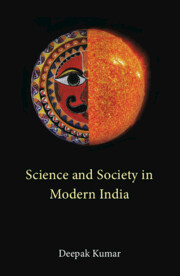1 - The Inheritance
Published online by Cambridge University Press: 23 May 2023
Summary
Among all nations India was known as the mine of wisdom and the fountain-head of justice. Although their colour belongs to the first grade of blackness, yet God the Exalted has kept them immune from evil character, base conduct and low nature. He [God] has thus exalted them [Indians] over many brown and white peoples … They also obtained profound and abundant knowledge of the movements of the stars, the secrets of the celestial sphere and all other branches of mathematical sciences. Moreover, of all the peoples they are the most learned in the science of medicine and well-informed about the properties of drugs and the nature of composite elements.
—Qadi Said al-Andalusi (1029–1070)Wrote thus the author of probably the first work on the history of science in any language, in his Țabaqāt al-Umam. And he was right in his estimation. Indian society, from a deep distant past, has nurtured a thinking civilization. It has never lived an isolated existence, remained largely plural, and seldom displayed xenophobic tendencies. In his Brihat Samhita, the astronomer Varahmihir (6th century AD) declared the mulechchha (unclean) Yavanas (Ionians or Greeks) to be as honourable as Hindu rishis (sages) because the science of astronomy was firmly established among them. Even in the most ancient Vedic times when knowledge was expressed through mantras and sutras (incantations and aphorisms), one can find not only a high philosophical tradition but also some practical geometrical knowledge. Sulba-sutras, for example, provided a range of geometrical knowledge required for the Vedic altar-builder in a systematic form. One who was well-versed in that science was called samkhyajna (expert in numbers), parimanajna (expert in measuring), and sulba-vid (expert of the sulba).
From numerous historical examples, one can safely surmise that the techno-scientific tradition in India has largely been a synthetic one, continuously evolving as a result of each politico-cultural interaction with the outside world and social change within the region. In pre-modern times, India was known for its contribution to astronomy, medicine, and mathematics. In terms of techniques and technologies, metallurgy, textile, and structural engineering stand as examples of India’s competence and innovativeness. It is true that India could not expand its knowledge base like post-Renaissance Europe did.
- Type
- Chapter
- Information
- Science and Society in Modern India , pp. 1 - 23Publisher: Cambridge University PressPrint publication year: 2023



